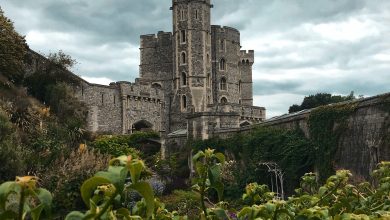Human Rights Violations in Kashmir and the True Colours/Real Face of the Indian Democracy:

By Qasim Swati (United Kingdom)
Article 370 of the Constitution of India had a great significance for the people of Kashmir. The majority of them considered Article 370 as the principal and main justification for being a part of India. The region of Jammu and Kashmir had been given a ‘Special Status’ by this Article, which allowed the region to have a state flag, a separate constitution and autonomy over the internal administration of the State, except no control over such matters, as communications, defence and foreign affairs.
The permanent residents of the region received special privileges, like the exclusive right to own property, fundamental rights, and have state government jobs in the State, as a result of adding another provision under Article 370 – 35A. This was due to Article 370 that the Indian citizens from other states of the country were not permitted to purchase property or land in Jammu and Kashmir, nor could the Centre have had any power to declare financial emergency in the State, accordingly.
Article 370 was a temporary provision of the Indian Constitution that promised to give autonomous status to Jammu and Kashmir and restricted the powers of the Parliament of India for making laws for the State. Thus, this Article was a great source of protection and solace for the people of Jammu and Kashmir in so many ways.
However, it was another ‘Dark Day’ in the history of Kashmir when the Indian BJP government, led by Narendra Damodardas Modi (a member of BJP and of the Rashtriya Swayamsevak Sangh, a Hindu nationalist volunteer organisation) revoked Article 370 of the Constitution of India and stripped Disputed Kashmir of Special Status, as reported by the BBC on Monday, 5 August, 2019.
Following resolutions passed in both the Houses of Indian Parliament (the Rajya Sabha/Council of States and the Lok Sabha/House of the People), the Indian President Ram Nath Kovind declared on 6 August 2019, all the clauses of Article 370 to be non-functional or inoperative by issuing a further order.
Not only this, but the State of Jammu and Kashmir is proposed to be divided into two ‘Union Territories’ to be called Jammu and Kashmir and Ladakh after Jammu and Kashmir’s ‘Re-organisation Bill’ was passed in both the Houses of Parliament of India.
Besides involving in different combats and skirmishes to have control over the Siachen Glacier, India and Pakistan have fought three wars in 1947 – 1948, 1965 and 1999, respectively, resulting from the Conflict of Kashmir. After revoking Article 370 of the Indian Constitution and stripping the Indian-occupied Kashmir of Special Status, the relations between India and Pakistan are extremely tense, which could lead to another war between the two nuclear neighbouring countries, that may have many serious consequences for the region as well as for the rest of the world.
Is India the Largest Democracy of the World?
After abolishing Article 370 of the Constitution, many questions arise that need to be answered. As India is boasting of being the largest democracy of the world, but what does India mean by democracy?
Does India mean by its democracy the one under which circumstances India got its own independence from the British Empire by fighting for its Right of Self-determination’? Does the Indian democracy mean to persecute, beat, terrorise and kill the innocent people of Kashmir? Does such a democratic government, like the one as the Government of India, mean a form of government where there the lives, properties, honour and future of the people are not safe? Does the Indian democracy mean to deprive people of their basic human rights, kill their children, men and women, sexually, mentally and physically harass and rape their female population?
The Right of Self-determination & the People of Kashmir:
Self-determination is the ability or power to make decisions for yourself, especially the power of a nation to decide how it will be governed. The Kashmiri people have been battling for their ‘Right of Self-determination’ for the last more than 71 years since 1947.
This is the same right of self-determination of the people of Kashmir that has been endorsed in one of the recommendations by the Office of the High Commissioner for Human Rights (OHCHR) to the Human Rights Council in the 2018 UN Report on Kashmir, which says, as ‘Fully respect the right of self-determination of the people of Kashmir, as protected under international law.
If democracy means ‘a government of the people, by the people, and for the people’, as defined by Abraham Lincoln (a renowned American President and a national hero), then, the people of Kashmir should be given their right of self-determination, as India deems itself to be the largest democracy in the world.
Ironically, The Indian National Congress succeeded in getting its right of self-determination in, approximately, a 62-year period in 1947 in the form of an independent country in the name of India after its foundation in 1885. Nevertheless, the people of Kashmir have been fighting for the same right of self-determination for the last more than 71 years, but they are given nothing except bullets; a barrage of tear gas; continuous curfews; blackouts; disconnection from communication, like television, internet, etc.; dead bodies of their loved ones; stripping them of their basic human rights; harassment in their homes, streets and public places; house arrests of their leaders, politicians and other influential people and the unending battle of the Indian security forces to silence them (the people of Kashmir) forever in order to give up their struggle for getting their right of self-determination in their own homeland (Kashmir).
Qasim Swati is a freelance journalist, writer and human rights activist, based in the UK, and can be reached at https://qasimswati.com or mailto:info@qasimswati.com.

